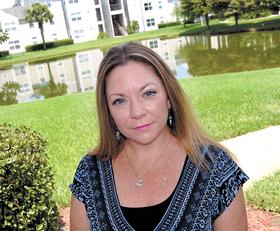Tax proposed for higher ed construction

Funding for higher education construction in Florida may be broke, but Lori Trainer isn’t happy about one proposal to fix it.
That option: adding a 2.5 percent tax on commercial and residential water and sewer bills. That, in turn, could translate to an estimated additional $67,570 per year at Winter Park-based Concord Management Ltd., which manages 12,715 affordable housing units in Central Florida. “That can push someone from black to red,” said Trainer, vice president of customer and public relations at Concord.
It’s a tough predicament. Colleges say they need more money to pay for construction, which would add more construction jobs, permanent hires to staff the facilities and add to the long-term health of the work force. Without being able to expand facilities, some colleges may have to cap enrollment.
But to get the funding to expand, schools may ask the state to raise taxes or create a new tax, which business owners believe would hamper the region’s economic recovery.
Construction now is funded primarily through the state Public Education Capital Outlay, or PECO, fund. The state takes revenue from a 2.5 percent tax on gas, electricity and communications to finance bonds, which then are given to schools to pay for construction.
But funding dropped off due to less consumer use and an AT&T settlement that gave money back to customers. The fund went from $731.3 million available in 2010 to $120.3 million in 2011, which has led to infighting between community colleges, universities and K-12 schools for the much smaller pool of money.
The Council of Presidents, a group that includes the presidents of Florida’s 28 community colleges, is looking for ways to fix higher education construction funding in Florida. The stakes are high, representatives said: If schools can’t find ways to reliably fund new construction, they will have to limit enrollment.
“PECO’s not broken, it’s broke,” said William Law, president of St. Petersburg College . “There’s not enough money flowing through its veins to meet the needs of the colleges.”
At the Sept. 9 meeting of the Council of Presidents, the group will decide what possible solutions it will propose to the Florida College System, which oversees the state’s community colleges. That proposal will become a report for state lawmakers by Dec. 31, and will be used to guide potential changes in the 2012 legislative session next spring.
Options on the table now include:
- Expanding the gross receipts tax base to include water and sewer bills instead of just communications, gas and electricity.
- Increasing the tax rate on communications, gas and electric bills from 2.5 percent to a higher rate.
- Proposing a state-funded higher education stimulus package, a fund in the range of $1 billion over three years to allow colleges with the greatest capital needs to get access to funding.
- Using state general revenue to pay off existing bonds, which would clear the way for more capacity.
Dick Batchelor, a political consultant and owner of Dick Batchelor Management Group Inc., said the group has to be creative because colleges have been woefully underfunded. But, he said, with the Tea Party mentality in Tallahassee that’s opposed to any new taxes, the group would have the best chance of getting items passed if it bills them as an economic development package.
Sandy Shugart, president of Valencia College, agreed that more taxes would be a tough sell. He doubts the Legislature would raise taxes or create a new tax, and even if it did, that likely wouldn’t get past the governor’s desk.
Schools also are looking at other options, such as allowing colleges to go out for local bond referendums or allowing schools to do traditional borrowing for mortgages longer than seven years, the current limit. These options are more likely to hold water, experts said.
If the Council of Presidents moves forward with the idea of expanding the tax base to include water and sewer, it can expect resistance from the Florida Apartment Association , said Chip Tatum, vice president of government. The group believes creating a 2.5 percent tax on water and sewer bills would cost apartment complexes an aggregate of $2.2 million per year in Florida.
“We’re just now in recovery,” Tatum said, adding that most apartment complexes would pass the costs down to residents. “Any impact to cash flow is going to be hard for people to accept.”
What this means to you
- Potential new 2.5 percent tax on commercial and residential water and sewer bills.
- Possible increase from the existing 2.5 percent tax rate for communications companies to a higher rate, which would likely be passed to consumers.
- Potential for more construction and increased jobs to staff expansions.
